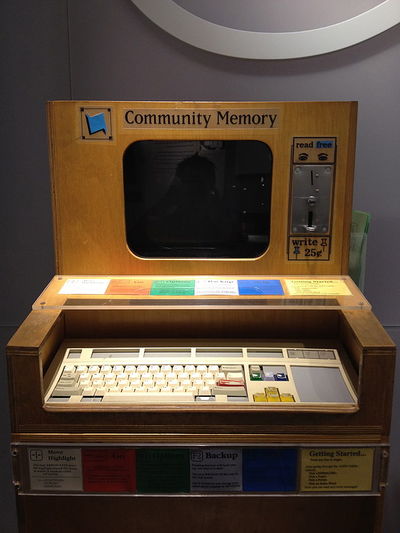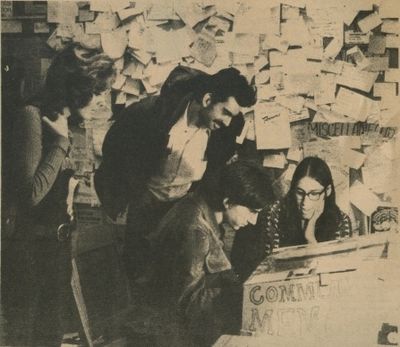Community Memory: Difference between revisions
No edit summary |
Andre Castro (talk | contribs) No edit summary |
||
| Line 3: | Line 3: | ||
</blockquote> | </blockquote> | ||
[[File:Community_memory_terminal.jpg]] | [[File:Community_memory_terminal.jpg|400px]] | ||
[[File:Community_Memory_terminal_at_Leopold's_Records.jpg]] | [[File:Community_Memory_terminal_at_Leopold's_Records.jpg|400px]] | ||
An example of the potential significance of the search index, no matter how simply implemented, when specific to a specific social community. | An example of the potential significance of the search index, no matter how simply implemented, when specific to a specific social community. | ||
Latest revision as of 15:09, 9 May 2018
Community Memory was the world's first public computerized bulletin board system. It was created by Efrem Lipkin, Mark Szpakowski, and Lee Felsenstein, acting as the Community Memory Project. Lee took care of hardware, Efrem software, and Mark user interface and information husbandry. A second incarnation of Community Memory, aimed at creating a global information network, appeared in the later seventies. Its major players were Efrem Lipkin and Ken Colstad. http://www.well.com/~szpak/cm/
An example of the potential significance of the search index, no matter how simply implemented, when specific to a specific social community.


Lee Felsenstein, influenced by Tools for Conviviality, Illich


